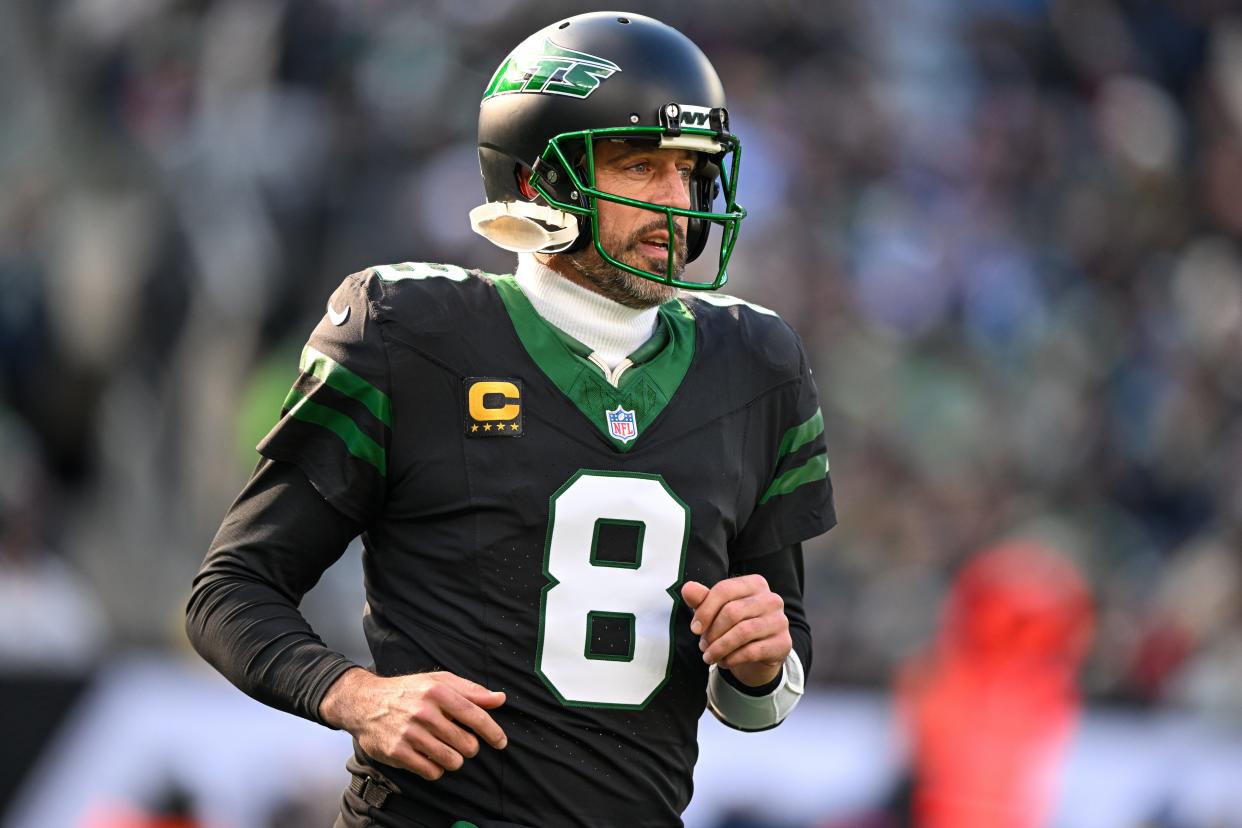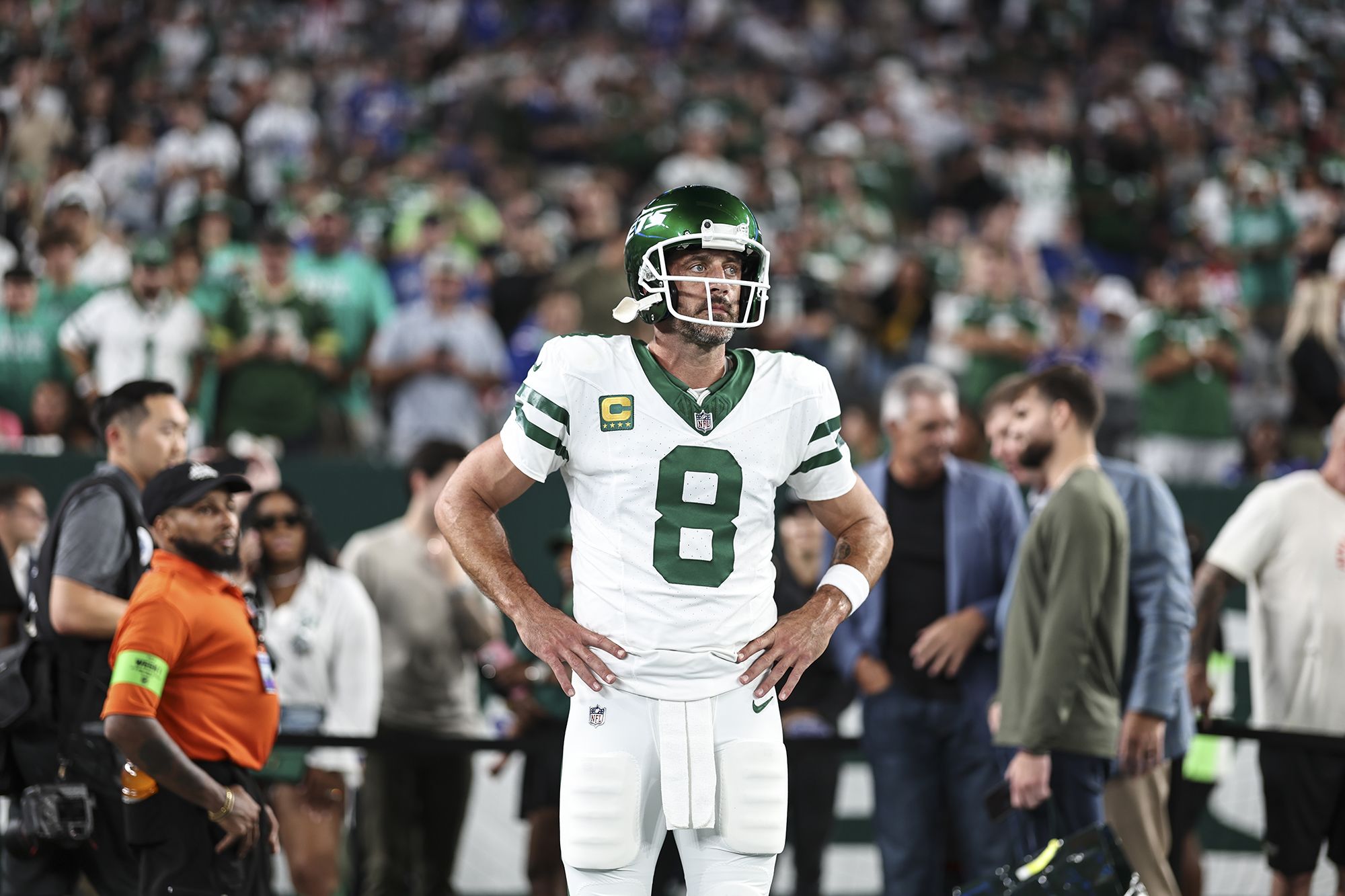Aaron Rodgers has been in the spotlight throughout his two-decade N.F.L. career, winning a Super Bowl and four Most Valuable Player awards with the Green Bay Packers while generating headlines about his separation from his parents and his distrust of the coronavirus vaccines.
Netflix captures much of that tension in a three-part docuseries, “Aaron Rodgers: Enigma,” that starts on Tuesday and follows the quarterback’s recovery from a torn Achilles’ tendon minutes into his first game after a high-profile trade to the New York Jets.
The project is executive produced by Gotham Chopra, a documentarian who recently profiled Simone Biles and Serena Williams.
Rodgers, 41, discusses freewheeling topics during a weekly appearance on an ESPN television show hosted by Pat McAfee, a former N.F.L. player.
But he was brusque in a news conference last week when asked about the documentary, looking and sounding annoyed while saying that filmmakers had approached him about following his rehabilitation before the project’s scope expanded.
“I’m glad it’s done,” Rodgers said after grimacing and shrugging his shoulders.
Here is a look at three memorable scenes from the documentary.
A relaxed Rodgers, wearing a string of beads, puffed on a pipe and closed his eyes while sitting around a campfire with at least 10 other people in Costa Rica. He was in an introspective mood and perhaps under the influence of a hallucinogenic substance.
“This is a ‘top of the mountain’ experience,” Rodgers said. “We’re pushing ourselves to the edge with various medicines. Why? Because my life matters. Because I got a host of ancestors backing me up.”
Rodgers was at a retreat centered on ayahuasca, a psychedelic plant-based brew used most frequently in South America. Rodgers said he had participated in nine ayahuasca ceremonies. He told a guide in the documentary that he was searching for “where people in life are finding deep peace and centeredness and presence” outside of organized religion.

Aaron Rodgers Documentary (Photo: Getty Images)
After he talked about his experience with ayahuasca on “The Pat McAfee Show” about two years ago, another N.F.L. player, Jordan Poyer, said he was inspired to experiment with the drug. Poyer called Rodgers a “trailblazer.”
After a hike in Los Angeles with Robert F. Kennedy Jr., a fellow vaccine skeptic who was running for president as a third-party candidate, Rodgers said he was asked to join the ticket as vice president.
As Rodgers and Kennedy descended a hill with three dogs, Rodgers said that he was frustrated with the current political landscape but that Kennedy gave him hope.
“I’ve just been disheartened forever that there’s a two-party system that’s really a one-party,” Rodgers told Kennedy, who is now President-elect Donald J. Trump’s pick to be health secretary. “The one party that’s ruling is the people with money.”
Rodgers said he turned down the vice-presidential offer because he did not yet want to retire from football.
After Rodgers won the Super Bowl in 2011, his personal life became fodder for gossip websites, which closely tracked his relationship with the actor Olivia Munn. The dynamics of his family came into full view in 2016 on an episode of “The Bachelorette.”
Rodgers’s younger brother, Jordan, was the winning contestant on JoJo Fletcher’s season, and during a hometown date in Chico, Calif., his family left two vacant seats at the dinner table to symbolize the quarterback’s absence. (Rodgers’s father, Ed, later told The New York Times that “Fame can change things.”)
In the documentary, Rodgers said he was not asked to attend the dinner, but said he might not have accepted an invitation anyway. “They all agreed this was a good thing to do, to leave two empty chairs at a stupid dating show that my brother just went on to get famous — his words not mine.”
Rodgers added that disagreements about his renouncement of the Christian faith was partly what led to his separating from his family.
“People ask me, ‘Is there hope for reconciliation?’ I say ‘Yeah, of course,’” Rodgers said. “I don’t wish any ill will on them at all. We’re just at different steps on the timeline of our own journeys.”
























